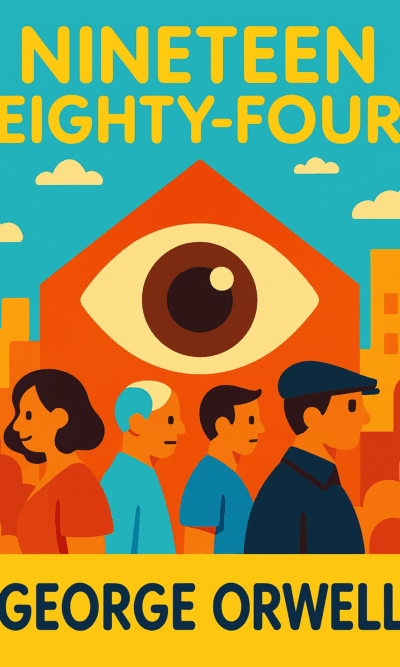Description
A Streetcar Named Desire is a famous play by Tennessee Williams that explores human weakness, the tension between fantasy and reality, and the struggle to hold on to hope in a world that often feels unforgiving. At its core, the story is about two people who represent opposite forces: Blanche DuBois, who clings to illusions, and Stanley Kowalski, who insists on harsh truth. Their conflict creates a powerful drama that has remained timeless since it was first performed in 1947.
The play begins in New Orleans, a city alive with sound, color, and energy. Into this setting arrives Blanche, a woman from a once-aristocratic Southern family. She is delicate, well-mannered, and elegant, but behind her polished surface hides deep pain and secrets. She has lost the family home, Belle Rêve, after years of financial decline and personal tragedy. Hoping for refuge, she visits her sister Stella, who lives in a small apartment with her husband, Stanley.
From the start, Blanche feels out of place. The apartment is cramped, the neighborhood noisy, and the atmosphere far from the refined world she once knew. Stella, however, seems content with her life and especially with her passionate bond with Stanley. Blanche struggles to accept this, believing her sister has lowered herself by living in such conditions.
Stanley quickly senses Blanche’s attitude and resents her presence. He is strong, physical, and direct—someone who enjoys simple pleasures like poker, beer, and bowling. Blanche, on the other hand, hides from reality with drink, dim lighting, and stories about her past. She dresses in fine clothes and covers harsh lightbulbs with paper lanterns so no one can see the marks of age or hardship on her face. For Stanley, these behaviors feel dishonest and insulting. For Blanche, they are ways to survive in a world that has already taken too much from her.
As the days pass, the apartment becomes a battlefield of pride and power. Blanche criticizes Stanley, mocking his rough manners and calling attention to his immigrant background. Stanley, in turn, investigates Blanche’s past, determined to reveal her true nature. He discovers that Blanche was forced to leave her teaching job after an affair with a student and that she lived in a hotel with a bad reputation. These revelations strip away the mask Blanche has worked so hard to maintain.
Meanwhile, Blanche develops a fragile relationship with one of Stanley’s friends, Mitch. Unlike Stanley, Mitch is gentle and sympathetic. He is drawn to Blanche’s charm and sees in her the possibility of marriage and companionship. Blanche, desperate for security, encourages his attention. But when Stanley tells Mitch the truth about Blanche’s past, he withdraws, unable to reconcile her flaws with his image of her. This betrayal leaves Blanche even more isolated.
The central conflict of the play comes to a breaking point when Stanley confronts Blanche directly. Their battle is not only personal but also symbolic: Blanche represents imagination, beauty, and dreams, while Stanley represents raw reality, physical power, and modern practicality. In the final act, this conflict ends in tragedy. Stanley assaults Blanche, shattering her fragile grip on sanity.
The aftermath is heartbreaking. Blanche, broken and unable to cope, loses her final hold on reality. She begins to retreat fully into illusion, speaking of imaginary suitors and a glamorous future that will never come. Stella, who has just given birth to Stanley’s child, chooses to deny what her husband has done because she cannot face the truth. In the end, Blanche is taken away to a mental institution, whispering that she has always depended on the kindness of strangers.
The play closes with Stanley continuing his life as if nothing has changed, while Stella secretly questions the cost of her loyalty. The poker game goes on, echoing the world’s indifference to Blanche’s suffering.
What makes this story powerful is the way it captures the human need for both truth and illusion. Reality can be cruel, and people like Blanche try to soften it with dreams, romance, and beauty. But when those dreams collide with hard facts, the result can be devastating. Tennessee Williams suggests that society often admires strength and practicality while dismissing sensitivity and imagination. Yet he also shows how harshness without compassion destroys lives.
Blanche is not portrayed as perfect. She is vain, dishonest at times, and often cruel in her judgments. But she is also deeply human. Her flaws come from wounds she cannot heal—losing her husband, her family estate, and her reputation. Her attempt to hide behind illusions is not just foolishness; it is an effort to survive in a world that offers her little mercy.
Stanley, on the other hand, represents the triumph of reality. He is grounded, practical, and in many ways a symbol of a new America that values toughness over tradition. But his victory is disturbing because it is achieved through violence and cruelty. In defeating Blanche, he proves that reality can crush dreams, but he also exposes the emptiness of a world that celebrates strength without kindness.
The play leaves us with questions rather than easy answers. Do we need illusions to live meaningful lives? Is brutal honesty always better, or does it sometimes destroy what is fragile but beautiful? A Streetcar Named Desire does not settle these questions. Instead, it presents characters who embody both extremes and shows us the tragic results of their clash.
Even decades later, the story resonates. We all struggle with balancing dreams and reality, with hiding our flaws while seeking acceptance, with choosing between comfort and truth. Blanche’s downfall is painful to witness, but it also makes us reflect on our own ways of coping with the challenges of life.
In the end, A Streetcar Named Desire is not just a story about one woman’s collapse. It is about the human condition—the longing for love, the fragility of hope, and the dangers of a world without compassion. Tennessee Williams reminds us that while reality may always win, the need for kindness, beauty, and illusion is what keeps us human.





